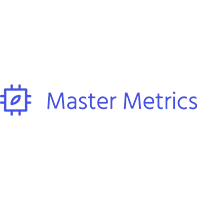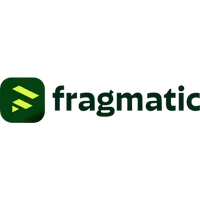
Best Marketing Analytics Software
What Is Marketing Analytics Software?
Marketing analytics software is a tool used to evaluate the effectiveness and success of marketing activities. The software helps encompass tools and processes that allow a company to manage, evaluate, and control its marketing strategies.
Marketing analytics software makes it easy to optimize business branding strategies and activities. As a result, you can enhance your business’s ROI (return on investment) by recognizing effective marketing methods and altering campaigns to increase conversions and sales.
Marketing analytics platforms involve marketing efforts across all channels and audiences, including email marketing, social media, web analytics, and digital advertisements.
Marketing analytics software is a standalone solution; these solutions source campaign data via interfaces with a company’s marketing technology stack involving marketing automation software, CRM software, digital advertising software, and digital analytics software. However, many all-in-one marketing platforms, such as marketing automation tools and built-in reporting capabilities.
Marketing analytics software collects data from marketing tools, and their core functionality is to examine marketing campaign-oriented information. Many organizations prefer to use analytic platforms or embedded business intelligence software to provide insights into company data from many sources, including marketing data.
Compare Marketing Analytics Software
impact.com
Moz Pro
Similarweb
CPV Lab PRO
Sprout Social
HappyLoop
Tracknow
Table of Contents
Key Features Of Marketing Analytics Software
Marketers need to measure the performance of their whole marketing funnel to be more accountable and control their company’s strategic goals for generating revenue. Here are some features of marketing analytics platforms that help you use marketing data to get results you can act on.
- Collection of data
Marketers will need to employ software for marketing analytics to collect data on all of their marketing efforts before they can analyze the data and convert it into meaningful insights. For example, this program may gather statistics on the channels via which the campaigns were sent. Without this foundational information, we can’t begin to get insights into customers’ and prospects’ tastes and behavior.
- Investment return (ROI)
Marketers face a deluge of data since they might examine so many variables. However, by analyzing these variables, marketers may gauge the success of their campaigns and their return on investment (ROI) with the best marketing online marketing analytics tool.
According to the marketing analytics tools’ ROI calculator, users may put a price tag on the success or failure of every buck they spend on advertisements. Therefore, marketers must demonstrate and enhance ROI and optimize marketing strategy when presenting to the company’s upper management.
- Reports
Analyzing data and highlighting analysis in a report is critical to communicate the findings. With the aid of marketing analytics software, you can create visuals and reports of the complete marketing process, from lead generation to customer retention.
Closed-loop reporting on all marketing activities is compiled in these reports and bespoke dashboards. Users may drill down into individual data points or filter by specified criteria inside various reporting capabilities to find patterns and make decisions about future campaigns.
The goal of online marketing analytics software is to centralize all of this information so that it can be readily analyzed and shared across teams and departments. Finally, this capability will help marketers predict future marketing goals and plans.
- Attribution reports
Reports that assist in determining which marketing or customer touchpoints should be credited for conversion are called attribution reports. Last interaction attribution, first click attribution, and multi-touch attribution models, including linear attribution, time decay attribution, and position-based attribution, are only some of the attribution models that may be generated by marketing analytics software.
According to the last interaction attribution model, a customer’s conversion is credited to the last traffic source they came from before making a purchase. In contrast, first-click attribution models consider a customer’s initial engagement channel.
Multi-touch attribution employs weighted modeling to award credit across many channels, campaigns, and touchpoints. Finally, linear attribution is a multi-touch attribution that distributes credit evenly across every touchpoint in the buyer experience.
Time decay attribution offers greater credit to the touchpoints closer to the buyer’s conversion and less to the preceding touchpoint. Finally, position-based attribution offers credit to two important touchpoints: the initial touch that brings the visitor in the door and the last touch when a lead converts. These two touches earn 40% of the credit, while the remaining touchpoints share the remaining 20%.
- Multichannel tracking
Acquiring and analyzing data across various marketing channels is vital to create a holistic picture of marketing campaign performance. Multichannel monitoring helps collect marketing performance data across many marketing channels.
For example, you can collect data from email, social media, SMS, display advertisements, search engine marketing, and landing pages. This lets marketers offer relevant and timely marketing material to their intended audience.
Benefits Of Using Marketing Analytics Software
All Businesses, either startups or well-established businesses, can take advantage of marketing analytics software because it assists them in making appropriate decisions about digital marketing strategies.
Executive leadership teams want to know the story behind the metrics or what was the need to decide those strategies. With software for marketing analytics, a business can measure its key performance indicators (KPIs) and determine the reasons behind certain marketing decisions. This leads to a better understanding of which channels to use and why and helps efficiently use resources.
- Actionable Insights
Marketing analytics software informs marketers about proactive marketing strategy decisions based on actionable information. Actionable insights imply strategic and tactical plans, enabling users to establish marketing objectives before data collection. That might be directly related to their business objectives to demonstrate ROI. Influential insights answer issues such as
- Which marketing channel should receive priority?
- Which material resonates effectively with the intended audience?
- How should a company’s marketing expenditure be prioritized for the coming year?
- Real-time insights
A significant advantage of marketing analytics is instantaneous data on how consumers engage with a brand and make real-time choices. The ability to rapidly target clients’ preferences based on their interactions and discussions has fundamentally altered how marketers communicate with their customers.
Online marketing analytics software enables businesses to utilize real-time data, altering their marketing approach and displaying competence in a certain field or issue. In addition, marketing analytics systems obtain even deeper insights from real-time data using machine learning.
Types Of Marketing Analytics Platforms
The main goal of a marketing analytic platform is to assist marketers in analyzing and optimizing advertising performance. One can follow different strategies and methods to achieve this goal. Choosing the appropriate software for a business is crucial, like searching for a well-integrated product with existing technology stack.
- Standalone solutions
Standalone packages may provide tools for improving digital advertisements but may not have omnichannel marketing campaign execution capabilities. Independent marketing analytics solutions link to different data sources and marketing channels to assess campaign performance.
These tools interface with marketing automation, customer relationship management, digital advertising, and digital analytics software. In addition, these independent systems collect and integrate marketing campaign data from diverse sources, allowing marketers to examine campaign success across channels and demographics.
- Integrated marketing suites
This help in the planning, execution, and evaluation of cross-channel methods of marketing. In addition to marketing analytics, these end-to-end systems include tools for executing marketing campaigns via email, social media, display advertisements, and landing sites. Additionally, marketing suites that incorporate marketing automation tools and account-based marketing platforms are possible.
Who Can Use Marketing Analytics Software?
Marketers are the ones who find the most value in marketing analytics solutions. However, the whole marketing team of a firm must adopt a holistic perspective of their marketing analytics since it will influence the business’s overall marketing strategy.
In addition to social media marketers and digital marketers, other specialist marketers, such as field marketers, event marketers, and marketing generalists, would also benefit from the best marketing online marketing analytics tools to enhance their campaigns.
Optimization, attribution, and justification are three fundamental elements of marketing performance management that may be addressed using marketing analytics software.
A marketing firm could also employ marketing analytics tools to match a company’s objectives for small or new enterprises that may not have the means to engage an in-house marketing staff. In addition, marketing companies may utilize marketing analytics tools to advise businesses on the best use of their marketing budget and provide a return on investment analysis for any campaigns they execute.
What Can Businesses Do With A Marketing Analytics Platform?
Platforms for marketing analytics include a variety of initiatives used by sales professionals, advertisers, and marketers. These systems simplify procedures using email management, social media management, and marketing automation. In addition, they supply additional information about clients to convert more sales leads.
As long as the information gathered via marketing analytics is correctly managed and used, it may aid in the expansion of businesses of all sizes. However, marketers can do a better job with suitable marketing metrics and analytics in place if they can:
- Learn to see the larger picture in marketing.
- Find out which initiatives had positive results and why
- Keep an eye on long-term patterns
- Establish the return on investment for each initiative.
- Predicting Future Outcomes
How much is the cost of a Marketing Analytics Solution?
The cost of marketing analytic solutions depends on various factors depending upon the strategies you are implementing in your marketing campaigns. Marketing analytics may cost you around $250 – $750 per month, including all marketing campaigns. The four main marketing analytics services and costs are Google Analytics consulting, conversion rate optimization, PPC management, and social media ad management.
What should you check when buying Marketing Analytics Software?
Whether you’re looking to purchase a new marketing analytics software for the first time or want to replace it, we will assist you in the entire selection process. First, buyers must evaluate the purpose of purchasing marketing analytics software and how they will use it. Then, based on the answers, ask yourself a few questions, and choose the right one for your needs:
- What are your company’s objectives behind purchasing a marketing analytics product?
- What marketing channels do you want to monitor now and in the future?
- Is it necessary for the product to integrate with any other software?
- What analytics features, if any, do you already have in your marketing technology stack?
- What is your financial situation, and how much you’re willing to spend on this software?
Other software related to Marketing Analytics Software
Long-term marketing effort monitoring is made possible by marketing analytics software. In turn, such knowledge can assist organizations in:
- Improved comprehension of their growth drivers
- Approve upcoming campaigns and eventually
- Achieve company objectives more quickly.
Additionally, a marketer can obtain important new insights using the appropriate analytics technology without relying on the opinions of the business intelligence teams. Instead, they may examine, compare, and evaluate the data at their disposal to improve their understanding and help them decide what to do next.
Some of the top-notch marketing analytics software available in the market are:
- HubSpot Marketing Hub
- Insider
- Semrush
- SharpSpring
- Mailchimp All-in-One Marketing Platform
- Mayple
- App Annie
- Funnel.io
- Hootsuite
- Supermetrics
The significance of marketing analytics cannot be overstated. While businesses have long benefited from marketing software, you need more advanced tools to manage, analyze, and measure your marketing performance to maximize its effectiveness and optimize ROI. Marketing analytics software will assist you in this endeavor, and you can begin by examining the features of the top product here, HubSpot Marketing.
A successful marketing program relies on the right marketing analytics solution. By understanding where your target audience is engaging and what is truly driving sales, you can assure that your money is being spent wisely and improve ROI.




















